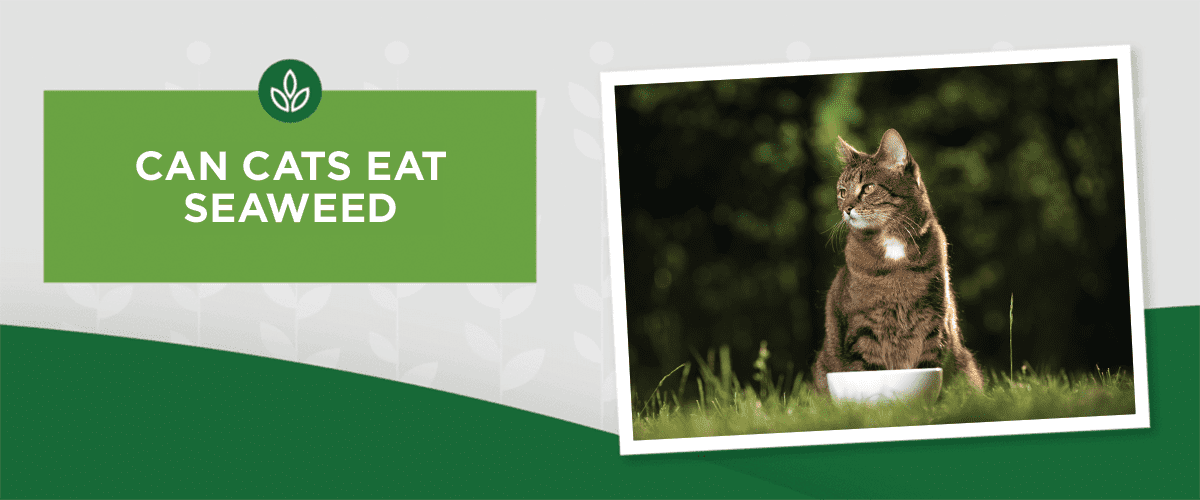Exploring Feline Diets: Can My Cat Eat Seaweed or Kelp?
You may have noticed your cat sniffing around your sushi a time or two and have wondered, “Is it safe for my cat to eat seaweed?” While your cat may have their sights set on the raw tuna on your plate, the question of whether cats can have seaweed is one that a lot of pet owners find themselves asking. The question has gained attention due to the potential health benefits associated with the food but it’s important to note that seaweed wouldn’t be a typical part of a natural diet for your cat.
Cats are obligate carnivores, meaning they require a diet that is meat dependent, as they get the nutrients they need through meat. In the wild, cats will often eat herbivores like small rodents, that consume plant matter. When the cat eats the rodent, they eat everything from the hair to the stomach contents. The partially digested plant matter in the stomach contents provides the wild cat with essential nutrients that only plants have to offer. Seaweed, as a marine plant, offers similar vitamins and minerals that a wild cat might ingest when eating prey outdoors. With this in mind, let’s explore the nutritional considerations and potential risks associated with introducing seaweed, kelp specifically, into your cat’s diet.
Benefits of Seaweed
Seaweed is a nutrient-dense superfood, offering essential proteins, fiber, vitamins, trace minerals, and antioxidants. Certain types though, can be harmful to your cat’s well-being as they can be high in sodium, contain heavy metals, or excessive iodine.
Kelp is a specific type of seaweed that, when consumed in the proper proportions, can offer valuable nutrients for cats. Specifically, kelp is high in fiber which helps to promote a strong digestive and immune system.
Introducing Kelp Seaweed
Whether your cat currently eats a dry recipe or canned wet cat food, if you’re looking to introduce kelp, we suggest doing so slowly and consulting a veterinarian. When looking to introduce kelp to your cat, we suggest looking at kelp products created specifically for pets. Anytime you introduce a new item to your pet, it’s essential to be cautious about things like:
- Introducing too much: Kelp packs a punch of iodine, and too much can lead to vomiting, diarrhea, and excessive thirst. If advised by your vet, start small (a small sprinkle) and increase gradually, working with your vet, if tolerated.
- Ignoring underlying health: Especially concerning thyroid issues, kelp can potentially worsen existing conditions. Always consult your vet before introducing kelp, especially if your cat takes medication or has an existing health concern.
- Choosing the wrong form: Avoid raw kelp, as contamination with heavy metals or bacteria is a risk. Both fresh and dried seaweed may contain heavy metals depending on the habitat from which it was sourced. Stick to cat specific recipes and treats.
- Sudden dietary changes: As with any change made to your pet’s diet, introduce a new item slowly! With the guidance of a vet, mix a tiny amount of kelp with your cat’s usual food and gradually increase over a few days to a week to avoid digestive upset.
- Ignoring allergies: While rare, some cats can be allergic to kelp. Watch for signs like itching, vomiting, or diarrhea after introducing kelp and stop immediately, and contact your vet, if you suspect an allergy.
Identifying a high quality cat food that utilizes kelp as an ingredient is a great way to incorporate kelp into your cat’s diet.
Considerations When Introducing Kelp Seaweed
Keep in mind that every cat is different and can have different reactions to new foods. To promote a smooth introduction work with your vet and gradually incorporate a high quality kelp infused food with their current food and monitor your cat’s response. This allows you to observe adverse reactions and adjust accordingly.
If you have any concerns or questions about your cat’s diet, consult with your veterinarian for personalized advice tailored to your cat’s unique needs.
If you’re looking for a high quality cat recipe that utilizes kelp, check out our recipes.




